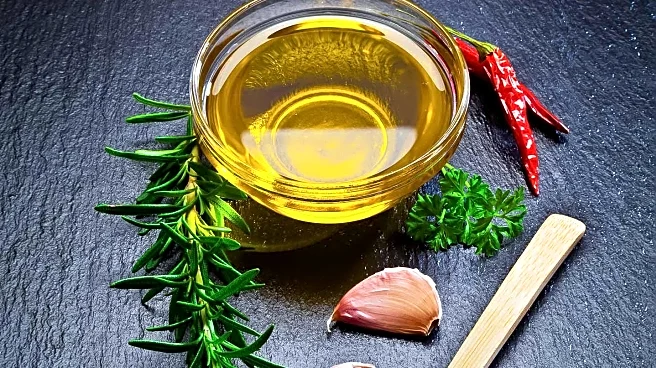What is the story about?
What's Happening?
Researchers from UCLA and other institutions have highlighted the potential cancer risks associated with grilling meat at high temperatures, which can produce carcinogenic compounds such as heterocyclic amines and polycyclic aromatic hydrocarbons. These compounds are formed when meat is charred, posing a risk of DNA damage and tumor development over time. To mitigate these risks, experts recommend marinating meat before grilling, which can reduce the formation of harmful chemicals by over 90%. Effective marinades include ingredients like vinegar, citrus juice, wine, yogurt, and antioxidant-rich herbs such as garlic, rosemary, and thyme. These ingredients not only enhance flavor but also create a protective barrier against heat and smoke, reducing direct exposure to carcinogens. The Karmanos Cancer Institute at Wayne State University supports these findings, noting that even a short marination period can significantly lower carcinogen levels.
Why It's Important?
The findings are significant for public health, as they offer a simple and effective method to reduce cancer risks associated with a common cooking practice. Grilling is a popular method of cooking in the U.S., especially during social gatherings and holidays. By adopting marination techniques, individuals can enjoy grilled meats with reduced health risks. This approach also emphasizes the importance of dietary choices in cancer prevention, encouraging the inclusion of fruits and vegetables alongside grilled meats to counteract harmful compounds. The research underscores the role of antioxidants in protecting against carcinogens, potentially influencing dietary guidelines and public health recommendations.
What's Next?
Further research may explore the specific mechanisms by which marinades reduce carcinogen formation, potentially leading to more refined guidelines for safe grilling practices. Public health campaigns could be developed to educate consumers on the benefits of marinating and pairing grilled meats with antioxidant-rich foods. Additionally, culinary industries might innovate new marinade products that maximize health benefits while enhancing flavor. Stakeholders such as health organizations and food manufacturers may collaborate to promote these practices, aiming to reduce cancer incidence related to dietary habits.
Beyond the Headlines
The emphasis on marination and antioxidant-rich diets reflects broader trends in health-conscious eating and preventive medicine. This development may influence cultural attitudes towards grilling and cooking, encouraging more mindful preparation methods. It also highlights the intersection of culinary arts and health sciences, potentially inspiring chefs and food scientists to innovate healthier cooking techniques. The research could lead to increased consumer demand for marinade products and antioxidant-rich foods, impacting food industry trends and market offerings.















